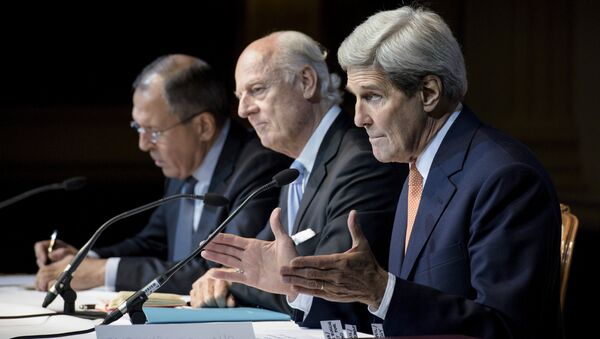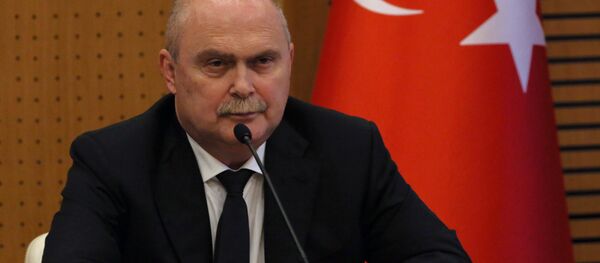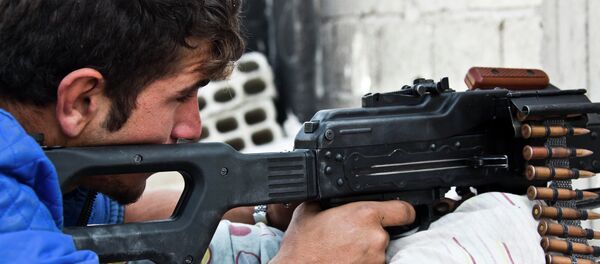Russian Foreign Minister Sergei Lavrov, US State Secretary John Kerry, EU foreign policy chief Federica Mogherini, and UN Special Envoy for Syria Staffan de Mistura among other world leaders are expected to take part in the upcoming negotiations.
"It won't be the last meeting of such a format. Like last time, many controversial issues won't be resolved," Suponina told RIA Novosti.
Just like the last time, one of the most pressing issues that likely won't be resolved during the upcoming meeting is the future of Syrian President Bashar al-Assad.
"Russia hasn't changed its position [on al-Assad]. However, Moscow is being active and would propose a series of concrete proposals, such as holding of early parliamentarian and presidential elections in Syria in 2016. I wish the United States and its allies were more active on this issue," Suponina said, as cited by RIA Novosti.
Russia wants to put a hold on the al-Assad issue and focus on negotiating a ceasefire and trying to build peace in Syria during the upcoming talks in Vienna. However, Washington and some of its allies aren't willing to do that, making it look like they aren't really interested in solving the Syrian crisis, the political expert added.
Another hot topic during the talks will be various factions of Syrian opposition forces. The opposition is so fragmented that nobody knows who would be an official representative of various rebel groups.
Moscow has been involved in international efforts to resolve the ongoing civil war in Syria, hosting two rounds of negotiation talks between the government and the opposition in 2015.
On Tuesday, several members of the NCC, including members of various Syrian political opposition parties as well as civic activists, arrived in Moscow to meet with officials from the Russian Foreign Ministry and Russian lawmakers before a second round of international Vienna talks on the Syrian crisis scheduled for Saturday.




